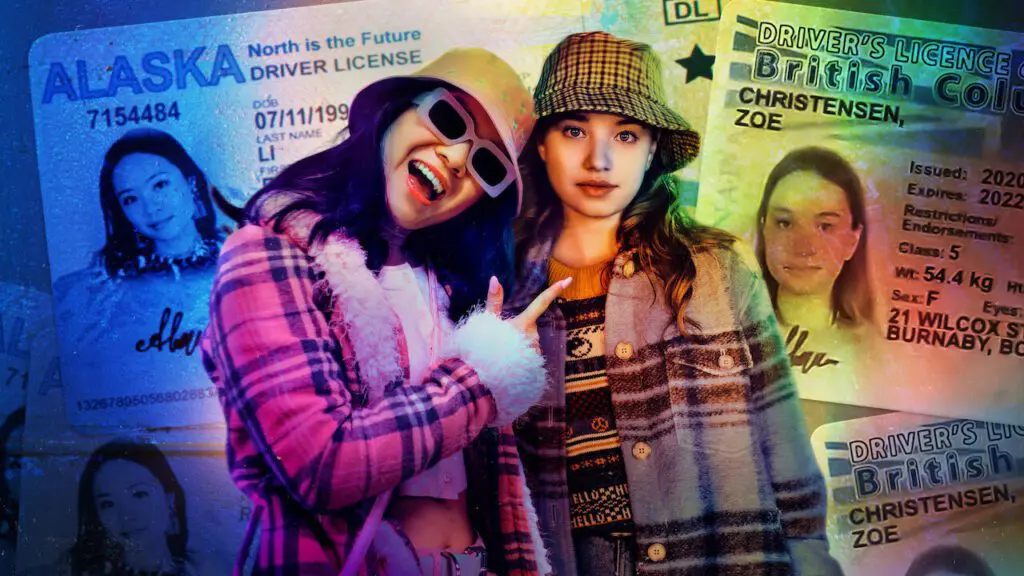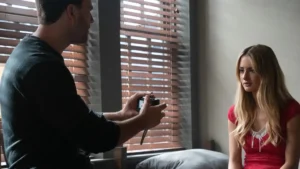Summary
Fakes has a mix of heart and verve that never goes out of style.
Fakes, a Netflix Canadian streaming import, has an interesting premise. The two main characters, Zoe (Emilija Baranac) and Becca (Jennifer Tong), alternate each episode as we see events from their perspectives. They compare, and contrast, and each scene can have a slightly different meaning.
This is important since these two best friends forever hate each other, and we try to figure out what went wrong with our favorite pair that are destined to be charged with a felony or two.
Created by David Turko (Warrior Nun), Fakes starts with the nerdy and adorable Zoe, who creates a fake college identification card. Why? To sneak into killer fraternity parties and make a couple of keg stands? Nope. Zoe needs to access college-level materials to study for class. She needs to ensure her future because she needs the scholarship to pay for college.
On her way home, “besty” Becca, whose family has money, calls Zoe for a ride after partying and some heavy drinking. She is going through some tough times at home. Her mother rules her life with an iron fist, and her father is having an affair. So, when she finds Zoe’s fake college ID, she pays her friend 400 dollars to make her a fake driver’s license, and a side business is born.
The two leads are very strong here. And surprisingly so. At first, we watch, frankly, two cliched characters: the nerd and the party girl. In fact, the pairing is a cliche in itself. Since the exception of Frasier, sitcoms have been obsessed with creating characters with different sensibilities to create a spark. Here, we see the arc of both young women as the series progress. They both become three-dimensional.
While it is refreshing to see Zoe go “breaking bad,” Jennifer Tong’s Becca particularly shines here. Turko and Fakes scribe Tabia Lau brings different layers to Becca that similar social issues when a teenager is dealing with such troubles at home. Yes, this is nothing groundbreaking, but the slight nuances here are appreciated.
This being a CBC production — subsidized by Canadian tax dollars, so there is the family argument about what you can genuinely show on those airwaves — the show never reaches points of unexpected violence and peak lives-at-stake suspense. The trigger for scenes that raise stakes is the character of Tryst (The 100’s Richard Harmon), a late twenty-something who is always trying to get ahead by illegitimate means and who helps the girls start their business. He brings an outside tension the show sorely needed.
Fakes has a new play on the story’s timeline and can be very funny. However, the first season does not answer the questions the pilot promises to answer. For one, the rift in the duo’s friendship is established at the end of the pilot. The other is why one is in jail, and the other is not. The season finale leaves plenty of promise, and Fakes may be primed to be Netflix’s next great streaming hit. (Fakes will speak to a younger demographic that networks like Netflix crave.). The series is well worth your time.




